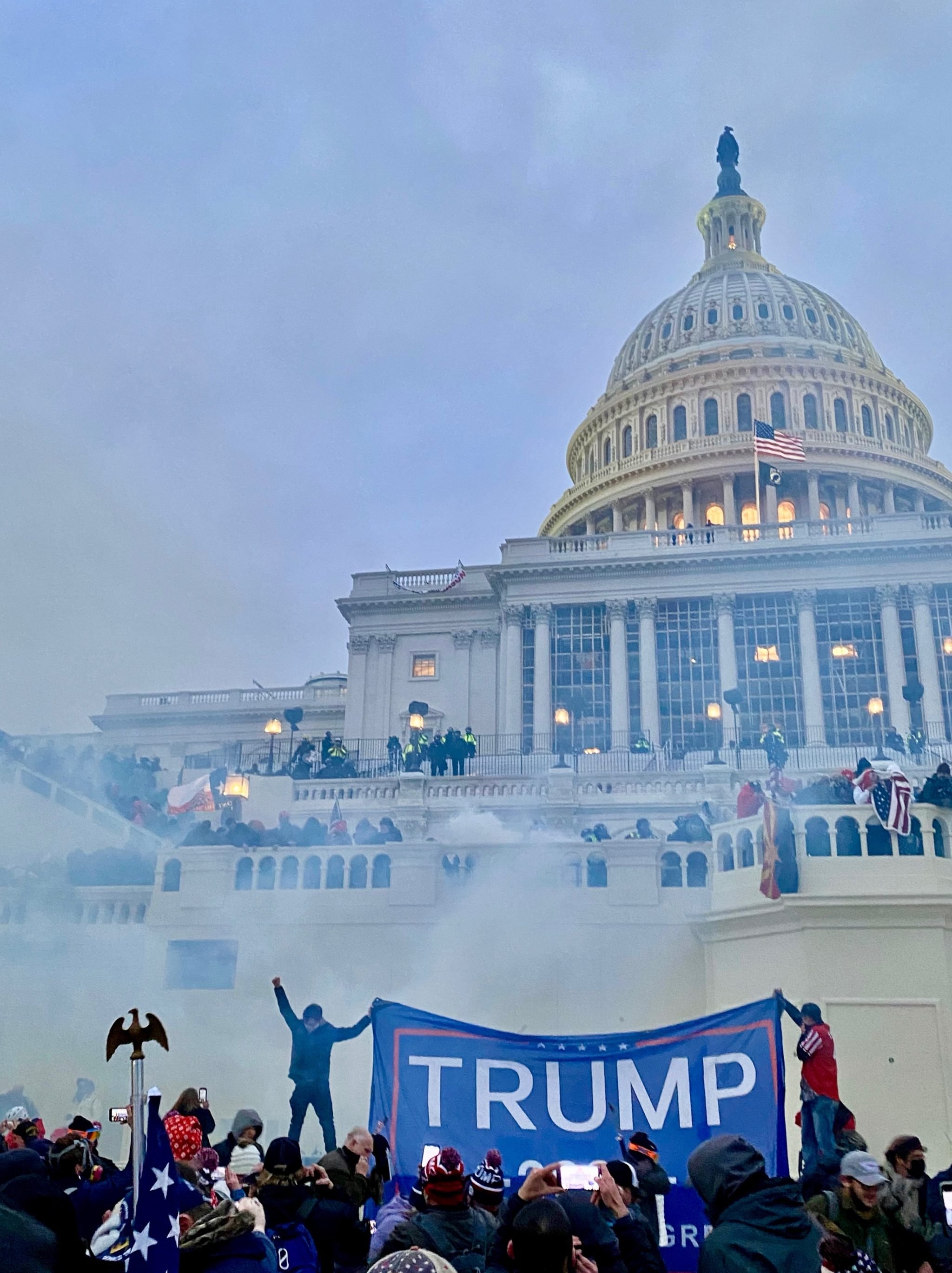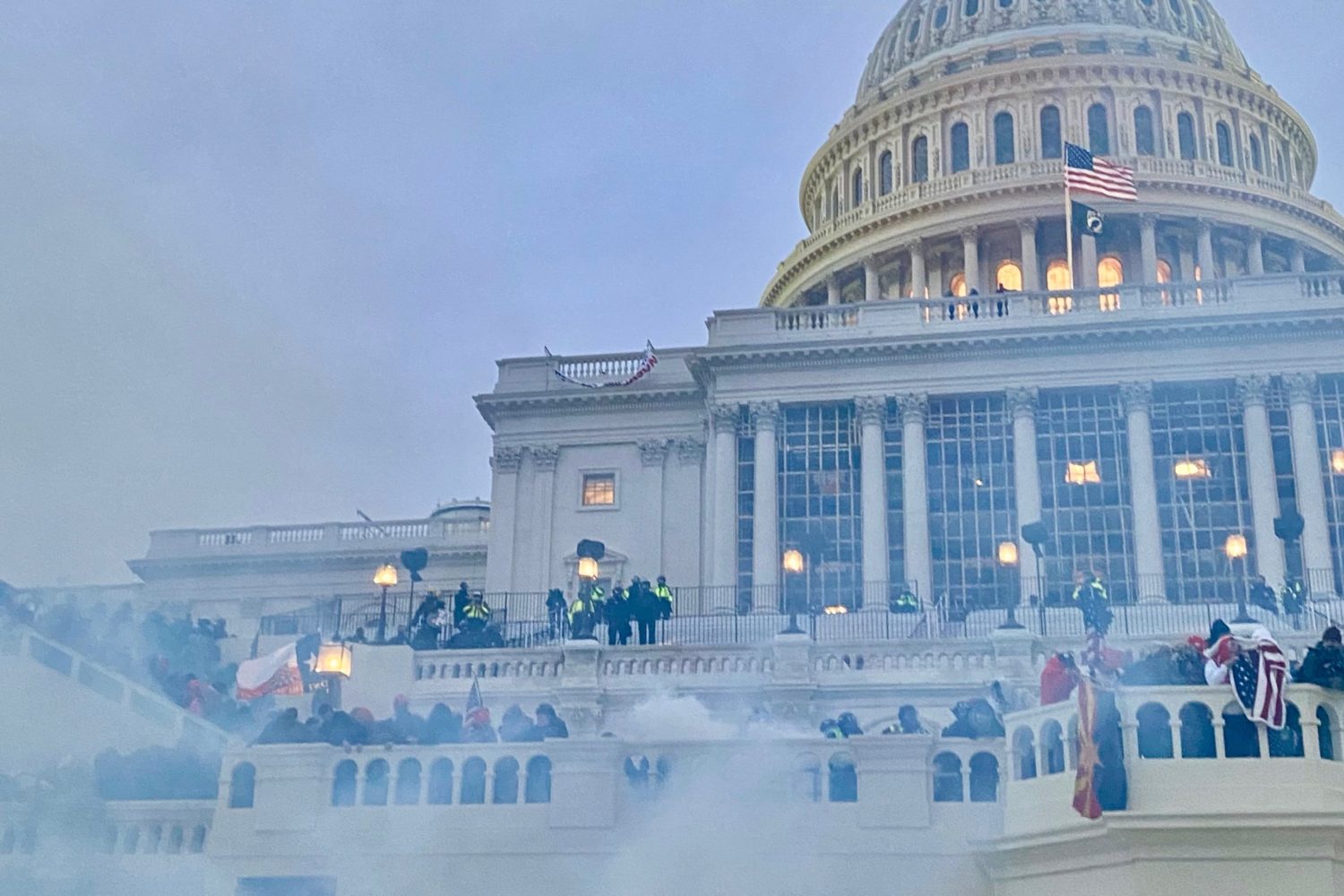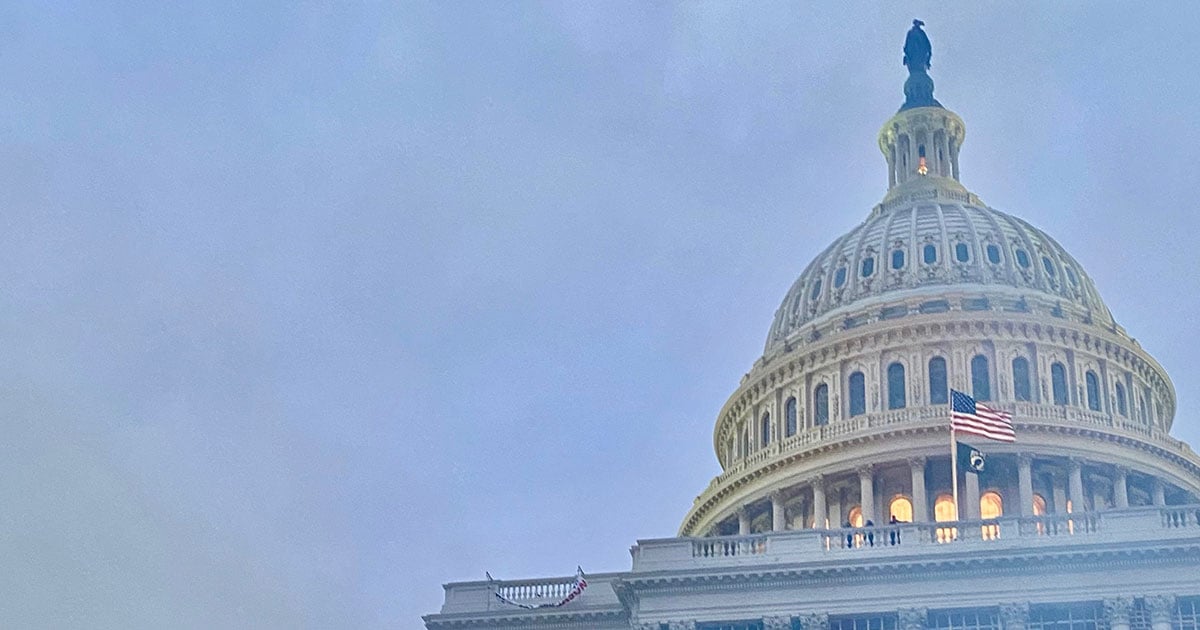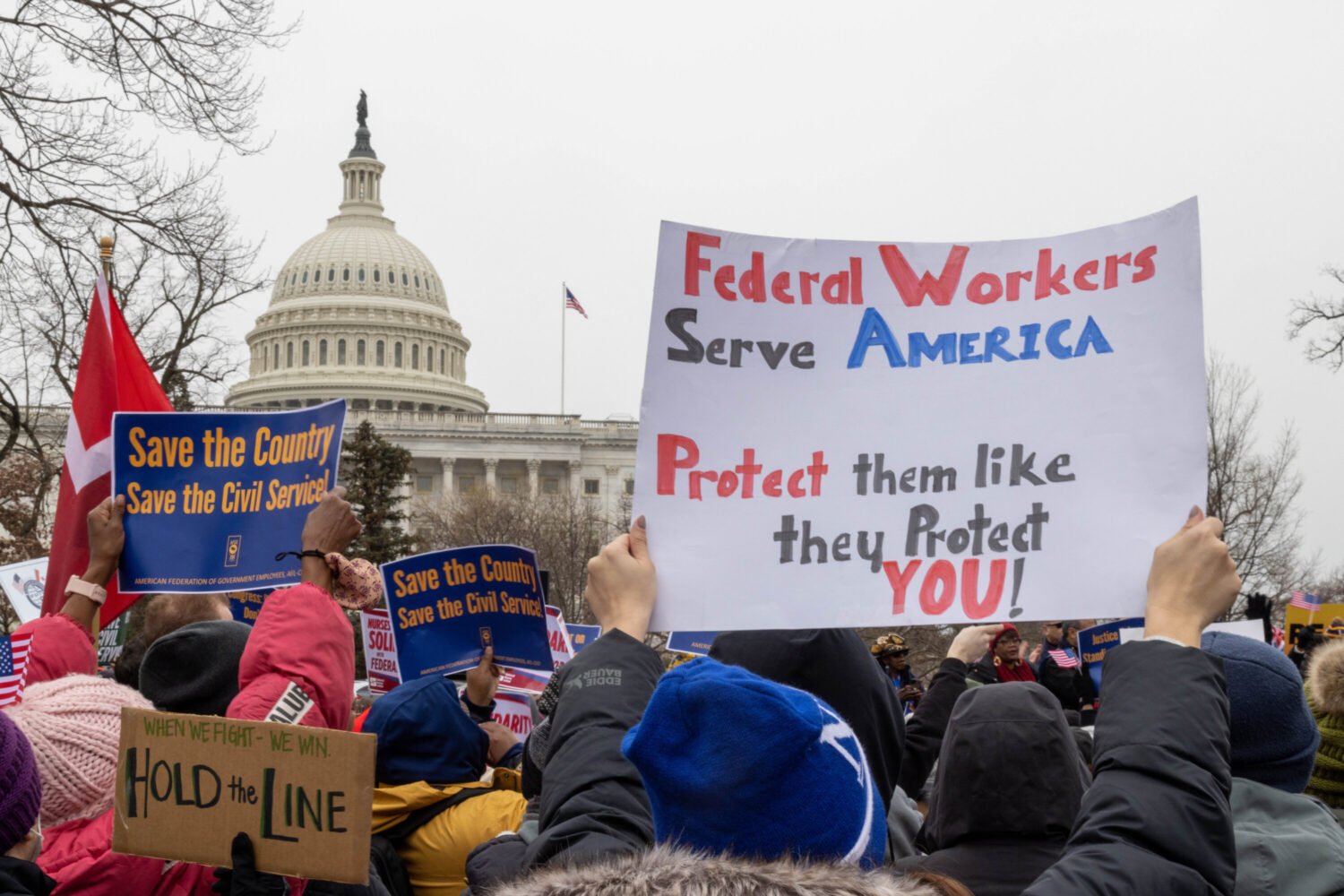Former President Donald Trump’s call for supporters to protest his possible indictment and arrest doesn’t seem to have found many takers, at least in DC.
“A lot of what they’re saying is ‘Don’t go to liberal towns,'” says Carla Hill, director of investigative research at the ADL’s Center on Extremism. “They think the government is trying to trap them.” That attitude reflects a notion held by many on the far right that the January 6, 2021, riot by Trump supporters was actually a setup by the feds.
Jared Holt, who researches domestic hate and extremist movements at the Institute for Strategic Dialogue, has had similar findings. “We are not seeing the indicators we typically look for, like conversations involving logistical planning, regarding any plans to protest Trump’s indictment in D.C. at this time,” he tells Washingtonian in an e-mail. “Rather, there’s a fair deal of paranoia among Trump die-hards about organizing public protests at all.”
Both US Representative Marjorie Taylor Greene and House speaker Kevin McCarthy have cautioned against protests. In pro-Trump communities, Holt says, there’s a perception that Washington “is a type of enemy territory for them and that organizing any sort of disruption there is a surefire way to end up in the hands of law enforcement.”
The National Park Service hasn’t received any permit applications for demonstrations related to Trump’s potential indictment, spokesperson Mike Litterst tells Washingtonian. The DC police haven’t seen any indication of protests, either, says spokesperson Brianna Burch: “The Metropolitan Police Department is not aware of any First Amendment activities relating to former President Donald Trump in the District of Columbia,” Burch says, adding that the department “will continue to monitor and will plan accordingly with our federal law enforcement partners to ensure the safety of DC residents and visitors.”
Residents of the region have plenty of reasons to be nervous about the possibility of far-right visitors. From Seth Rich to Comet Ping Pong to the far-right street violence after Trump lost the 2020 election, and on to January 6, the Trump years turned this region into a roach motel for online agitators like the former President, right-wing “influencers,” and their followers.
Some remnants of the trucker convoys that failed their way around the Washington region last year are still around and can occasionally be seen with the small, so-called “Freedom Corner” group that holds pro-January 6-prisoner vigils outside the DC Jail. Trump called into one of their protests last fall and recorded a part for a single that features some of those prisoners singing “The Star-Spangled Banner.”
“There are certainly some beliefs among influential Trump loyalists that the people charged for alleged participation in the Capitol riot are being treated unfairly and that they are types of political prisoners held by their own government,” Holt says. “That said, I suspect we haven’t seen much mobilization around that cause precisely because it is so immediately associated with federal law enforcement, which they hold a deep fear of.”
Hill says she’s seen “small little things” planned around Trump’s reportedly imminent indictment in New York City. There’s a rally planned in front of a “Let’s Go Brandon” store in Toms River, New Jersey, for example, and a rally planned for Thursday in Harrisburg, Pennsylvania, that could mix in pro-Trump messages alongside pro-life and pro-Second Amendment concerns. For the most part, she says, people are posting information about where they can protest the Manhattan DA but it’s “not structured, they’re just saying do it,” she says.
None of this is to say protests couldn’t develop here. CNN reported Monday night that a “Joint Information Center” to coordinate among agencies will be established Tuesday, as is usual practice for potential emergency responses. “If Trump is in fact indicted,” Holt says, “there is always a potential that protests will materialize in the days, weeks, and months afterward.”


















